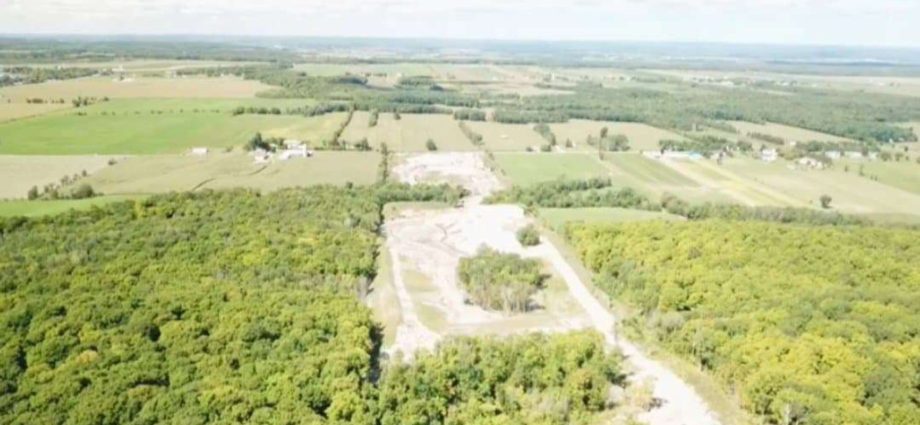
By Marisela Amador, Local Journalism Initiative Reporter, The Eastern Door
July 11, 2022
Last month, Bill C-226, An Act respecting the development of a national strategy to assess, prevent and address environmental racism and to advance environmental justice, passed second reading in the House of Commons.
This private member’s bill, sponsored by member of Parliament (MP) and former Green Party of Canada leader Elizabeth May, would require the government to develop a national strategy to collect information on environmental hazards in Indigenous and racialized communities, which could also eventually help change existing federal laws, policies and programs.
“I am very happy that Bill C-226 is getting the kind of support it is getting. I am hoping it will become law. I am certainly hoping that it gets from the House (of Commons) and into the Senate (of Canada) very quickly this fall,” said May.
The legislation received support from all of the major parties except for the Conservatives and the Bloc Quebecois before being referred to the Standing Committee on Environmental and Sustainable Development.
A few days prior to the June 22 vote, a press release was sent out by May, MPs from supporting parties, and over 100 environmental and social justice groups from around Canada, denouncing the years of government inaction regarding the G&R Recycling dump site in Kanesatake.
The release called the dump “part of a broader pattern of environmental racism” and demanded a long-term solution to the dumping problem in the community beyond the immediate cleanup of the main site.
The Mohawk Council of Kanesatake has not released any information or update regarding the cleanup since a December 2021 G&R report meeting.
“Canadian civil society and an increasing number of federal politicians stand in solidarity with the people of Kanesatake,” said Louis Ramirez, the campaign coordinator for the allied group that is spearheading the initiative.
“And the only reason that they are doing that is because of the immense bravery that some community members have shown in sticking their necks out and working in the shadows.”
NDP MP Alexandre Boulerice, who was also part of the release, said that he was asked by citizens of Kanesatake to get involved in the matter because the government had abdicated its responsibility to protect the environment and health of the community.
“It is a health issue, and it’s also a public safety issue. And it’s like Marc Miller (minister of Crown-Indigenous Relations) is not wanting to do anything, or Steven Guilbeault (minister of Environment and Climate Change ),” he said.
“It is not possible in 2022 that the community is a victim of illegal waste dumps with BCPs (polychlorinated biphenyls), hydrogen sulphide and other toxic products that can really hurt the health of citizens, families and children. For me, it’s really inconceivable.”
In March, Boulerice sent a letter to Guilbeault asking the federal government to fulfill its responsibility to the people of Kanesatake. Boulerice’s office received a reply from Guilbeault in June stating that Environment and Climate Change Canada had a limited role in the restoration of Kanesatake’s contaminated site.
Consequently, he said he decided to join May and the allied civil-society organizations because he believes this is a human rights issue and part of what reconciliation actually stands for.
In terms of Bill-C226, the MP said that the NDP is pleased to support the legislation because of the great concern it holds for First Nations and racialized communities across Canada.
“We will see the amendments. We will see how the bill will be implemented in the future. We were happy to see it pass second reading, but I have to say that I was quite disappointed to see the Bloc Quebecois vote against it and especially Jean-Denis Garon, who is the local MP and is supposed to act on this file,” he said.
During the second reading, Bloc MP Monique Pauzé said that the party could not support the bill because of its threat to Quebec sovereignty.
“I don’t buy it because I don’t want to sacrifice the health and safety of real people in real life over a jurisdiction debate about who is responsible for what,” said Boulerice.
“I don’t want to sacrifice the health of people from Kanesatake because there is a fight between Quebec and Ottawa about some jurisdiction. First Nations never asked for those divisions of jurisdiction, so it is really not their problem.”
Conservative MP Kyle Seeback argued that conservative opposition to the bill was due to the already complicated regulatory environment in Canada when it comes to developing resource projects.
May acknowledged that the private member’s bill had quite a few hurdles to overcome before becoming law but remains hopeful.
“We will have a hearing before this committee on the environment unless there is an opportunity for unanimous consent and moving it faster – those things happen on the fly, really,” said May.
“If we have to go the normal route, we will go to committee, and I will present first why we need this legislation and what it is intended to do.”
Subscribe to our newsletter.
She explained that this bill would be a proactive environmental justice program that would create tools for First Nations, racialized and impoverished communities that have basically been polluted against their will.
marisela.amador88@gmail.com



